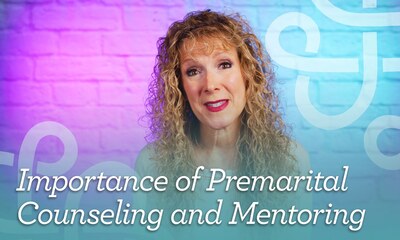Life For Your Marriage After An Affair pt.II

This blog is a continuation of an article that was published on February 27, 2018. Here, marriage and family therapist Dr. Paul Friesen continues sharing steps to rebuild a foundation for your marriage after experiencing an affair. He began part one by stating: "...affairs do not need to end a marriage. If genuine repentance and restoration driven by forgiveness and grace are experienced, there is no reason the marriage cannot survive and even thrive."
*Please note that while both men and women are capable of affairs, for the sake of simplicity, this article is written from the perspective of the husband being unfaithful. However, the steps are applicable to both.
5. Ask her what she needs from you to help regain her trust. Each woman in this situation has unique needs when it comes to rebuilding trust, so pay attention. For some, it might be putting a tracker on your car or phone or receiving a call when you get to work. One woman requested a card from her husband every day expressing that he was choosing her today and confirming his commitment to loving her well for the rest of his life. Some women have wanted very tangible expressions of trustworthiness, while intangibles have been more meaningful for others. It is up to her. It is not up to you to decide what she needs to reassure her of your love. And when you know what she wants, DO IT. We worked with a couple, the wife of which expressed a desire for him to affirm her daily (verbal, written, acts of service – it was wide open.) On a subsequent counseling session, she shared that she was really disappointed that he was hitting only about 2-3 days a week. He quickly said, “That’s better than I was doing!” No good. He has a way to go before he’ll convince her that she is his priority and that he’s “all in” for regaining her trust.
Some women have wanted very tangible expressions of trustworthiness, while intangibles have been more meaningful for others. It is up to her. It is not up to you to decide what she needs to reassure her of your love.
6. Don’t make her “cover” for you. If you have been teaching Sunday school, resign. If you are on the elder board, resign. Don’t have her tell your family you are working on a project when in fact you are living separately for a time. You don’t need to tell everyone, but you must not ask your spouse to lie. The rule we use is the level of disclosure is commensurate with the level of your involvements. For instance, if you are a pastor, the church needs to know. If you are a layperson not in leadership but in a small group, the small group needs to know. Your immediate family needs to know (assuming that if you have had children, they are “old enough” to handle such a disclosure. And if they’re over 10, they’re old enough.)
7. Surround yourself with a group that can care for you both. We call it a “Spiritual Care Time” in our book Restoring the Fallen. These are people that come alongside you to support and encourage you as a couple and to hold you accountable to follow through on your decisions.
8. Believe your best days can be ahead of you. Certainly, it is better not to have an affair, and we pray that you will both work vigilantly to protect your marriage from this destructive decision, but thankfully we serve a God of mercy and grace who LOVES to forgive, restore, and bring reconciliation. When an earthquake causes significant damage to a house, there are at least three options the homeowner will consider. Walk away from it, believing it is damaged beyond repair; act like the damage was no big deal and cosmetically “repair” the house by painting over cracks; or examine the damage to the infrastructure, clear away the rubble, and rebuild on a solid foundation with a design stronger than the original. So it is in the aftermath of an affair. You can walk away from the relationship and not look back because you believe there is no hope for life after such egregious sin. 1 John 1:9 reminds us: “If you confess your sin, He is faithful and just to forgive you your sin and to cleanse you from ALL unrighteousness.” If the offending spouse is truly repentant, this would be a missed opportunity to see the grace and power of God at work. Or, you can try to just carry on and act like nothing happened and not deal with it, which is like painting over black mold: it will do its deadly work in spite of the paint. Or you can do the work of clearing away the relational rubble and build a stronger relationship with a new foundation.
When an earthquake causes significant damage to a house, there are at least three options the homeowner will consider. Walk away from it, believing it is damaged beyond repair; act like the damage was no big deal and cosmetically “repair” the house by painting over cracks; or examine the damage to the infrastructure, clear away the rubble, and rebuild on a solid foundation with a design stronger than the original.
The first option leaves a pile of issues that will follow you. The second seems like it worked until another tremor hits, increasing the long-term damage to the relationship (if it even survives.) The third takes more work and is more painful, but has the hope of a stronger, thriving relationship. Choosing option number three is not only best for the couple, but as a witness to their families, churches, and a watching world that desperately wants to know if the Gospel truly is Good News, even in very difficult times.


